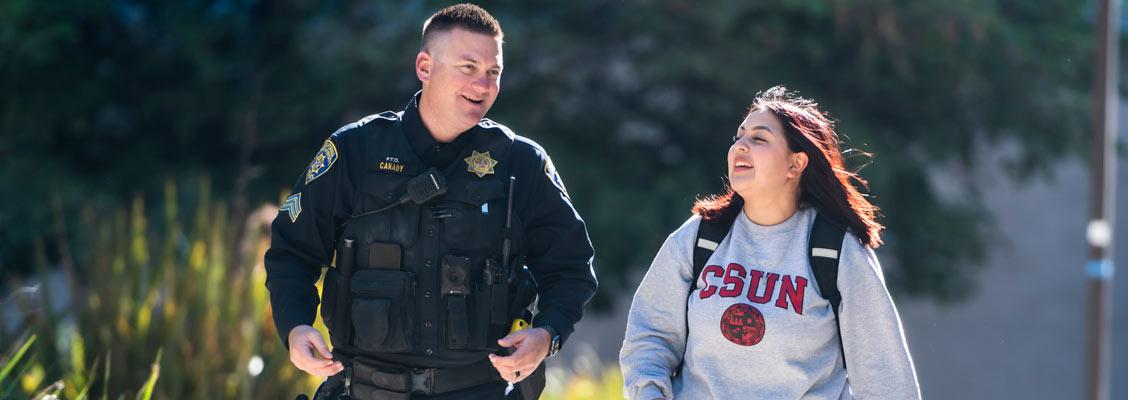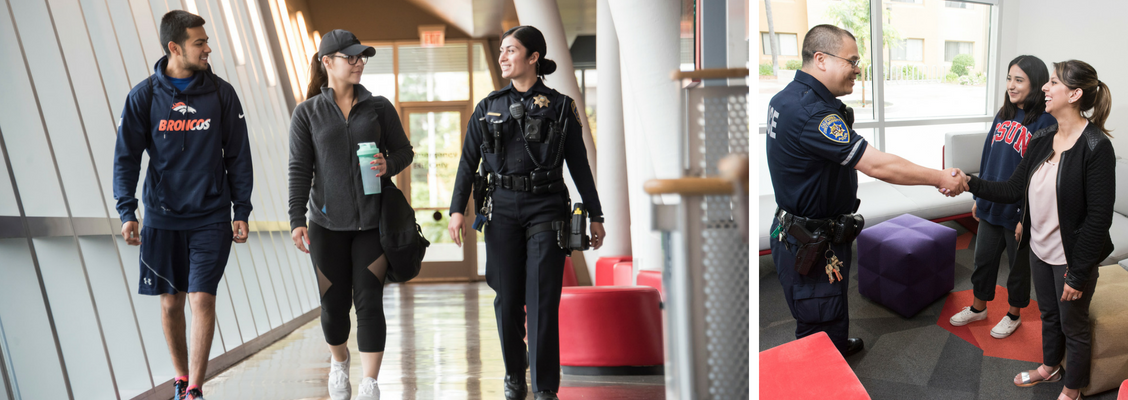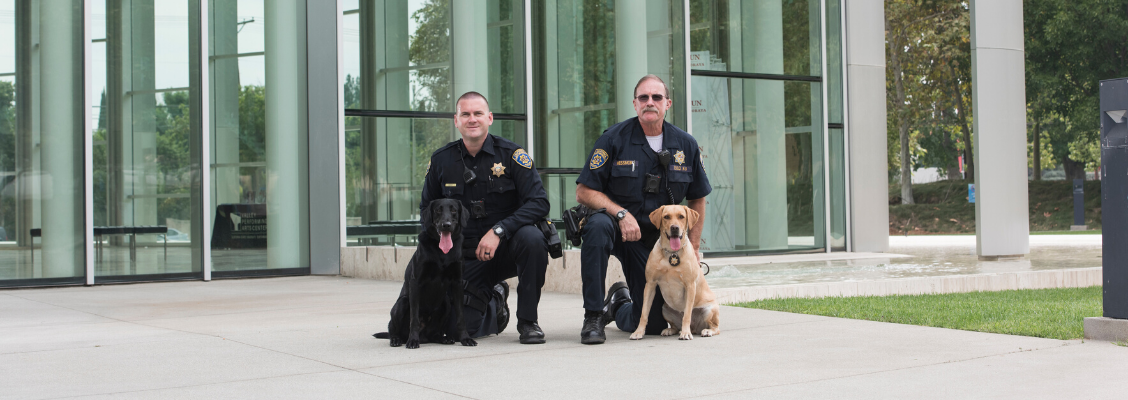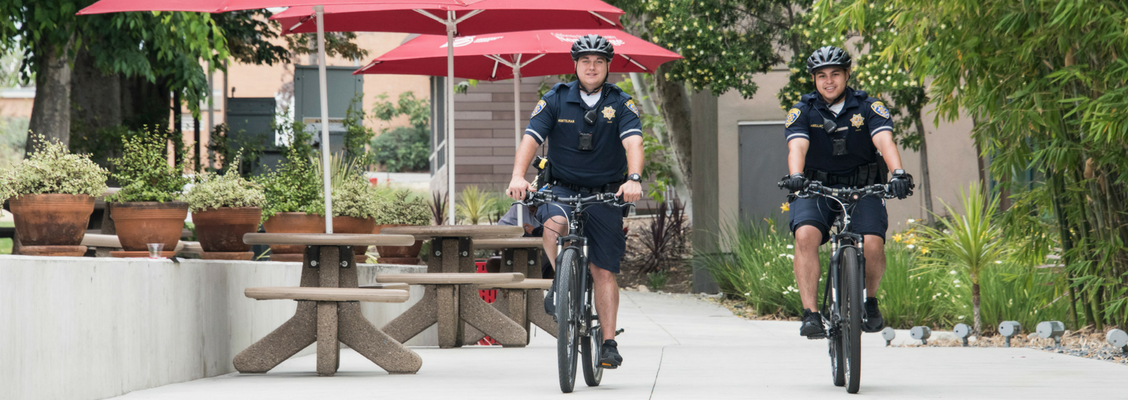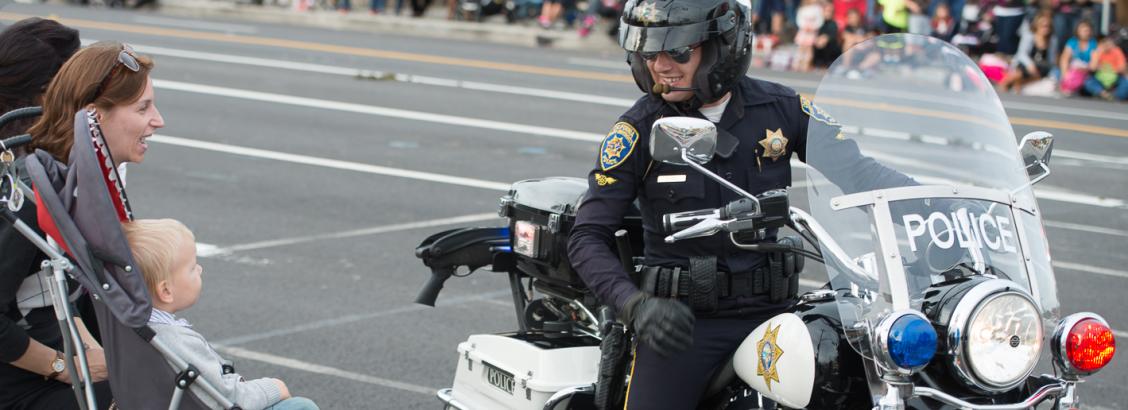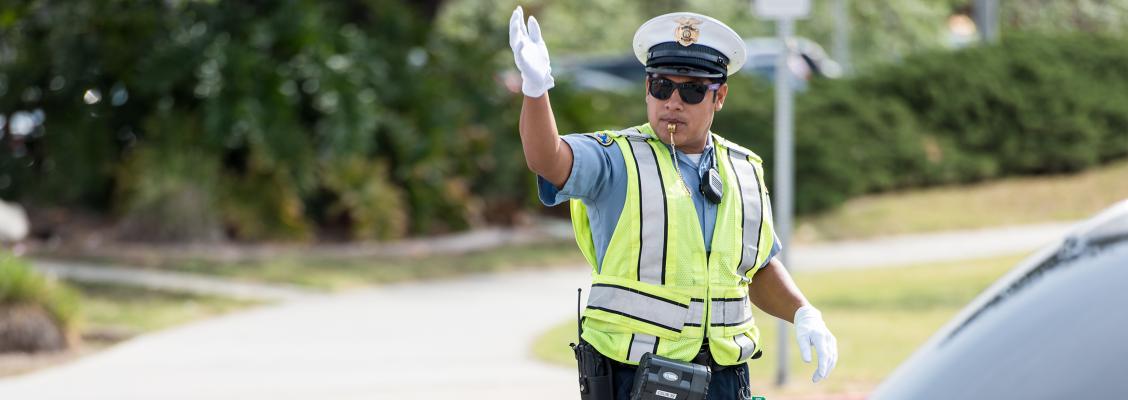On-Campus:
University Police:
Emergency: 911 (From a campus phone) OR (818) 677-2111 (or from a cell phone) Non-emergency: (818) 677-2111 (or from a cell phone)
To request an alcohol awareness program for your group, call the Community Policing Team at: (818) 677-2107 or email
University Counseling Services:
(818) 677-2366 * (818) 677-7834 (TTY)
https://www.csun.edu/counseling/
CSUN HelpLine: (818) 349-HELP (4357) - All cases are confidential
6:00 PM to 12:00 AM Sunday-Thursday / 7:00 PM to 10:00 PM Friday/Saturday
Klotz Student Health Center:
(818) 677-3666
https://www.csun.edu/shc
Off-Campus:
Alcoholics Anonymous (Local meeting information)
Alcoholics Anonymous (AA) is a fellowship of men and women who share their experience, strength, and hope with each other that they may solve their common problem and help others to recover from alcoholism. The only requirement for membership is a desire to stop drinking. There are no dues or fees for AA membership.
Alcohol, Peer Pressure and Underage Drinking Info for Young Teens
B4UDrink Educator - Interactive Virtual Bar
B4UDrink Educator is a program which educates the user about how alcohol consumption affects an individual's Blood Alcohol Concentration (BAC) level. The program allows users to project their BAC level based on gender, weight, and the type and number of drinks consumed.
College Drinking - Changing the Culture - Research about alcohol and college drinking prevention
The Gordie Foundation: Dedicated to the memory of Gordie Bailey, who was an 18-year old freshman at the University of Colorado who died of alcohol poisoning on September 17, 2004.
Mothers Against Drunk Driving (MADD)
Phone: 1-800-GET-MADD (438-6233) or Victim Services 24-Hour Helpline 1-877-MADD-HELP (1-877-623-3435)
National Institute on Alcohol Abuse and Alcoholism
NIAAA provides leadership in the national effort to reduce alcohol-related problems
Sam Spady Foundation
Honors the memory of Samantha Spady, a 19-year old student at Colorado State University, who died of alcohol poisoning on September 5, 2004.
Substance Abuse Treatment Facility Locator The Locator is the Substance Abuse and Mental Health Services Administration's online searchable directory of alcohol and drug abuse programs located around the country.
Substance Abuse Treatment Facility Locator
The Locator is the Substance Abuse and Mental Health Services Administration's online searchable directory of alcohol and drug abuse programs located around the country.
Students Against Destructive Decisions (SADD)
SADD’s Mission is to provide students with the best prevention and intervention tools possible to
deal with the issues of underage drinking, other drug use, impaired driving and other destructive decisions.
HOW DRINKING IMPAIRS YOU
1. Intoxication seriously impairs your physical and mental abilities and makes you an easy target for becoming a victim.
2. Drinking impairs your ability to make good decisions concerning safety.
3. People who are under the influence of alcohol often do dangerous or illegal things, which sober people would never consider.
4. If you drink, don't drive - always designate a sober driver or consider alternative methods of transportation.
5. Alcoholism is a disease; if you or someone close to you needs help, contact the University Counseling Center, the Klotz Student Health Center or the University Police Department.
(Source: International Association of Campus Law Enforcement Administrators, Crime Prevention Resources-Personal Safety Tips)
SOBERING STATISTICS
Driving under the influence (DUI) is the leading cause of fatal traffic collisions in California.
In 2005 in California, over 1,000 people were killed and over 22,800 people were injured as a result of a DUI collision.
In 2005, over 180,000 people in California were arrested for DUI.
A conviction for DUI can cost you about $7,000 or more in insurance costs, court fees, lost wages, etc.
YOUR BODY’S ABILITY TO PROCESS ALCOHOL DEPENDS ON:
Gender
Body weight
Number of drinks consumed and the pace at which you consume them
Food intake (prior to drinking)
Amount of sleep you've had
Pre-existing medical conditions
KNOW THE SIGNS OF ALCOHOL POISONING
After someone stops drinking, the heart keeps beating, and the alcohol in the stomach continues to enter the bloodstream and circulate through the system. Alcohol poisoning requires immediate medical attention. Be aware that a person who has passed out can die.
Remember - MUST HELP!
MENTAL CONFUSION
UNRESPONSIVE
SNORING – GASPING FOR AIR
THROWING UP
HYPOTHERMIA – COLD OR CLAMMY SKIN
ERRATIC BREATHING
LOSS OF CONSCIOUSNESS
PALENESS OR BLUENESS OF SKIN
(Source: Awareawakealive.org)
For more information and help with alcohol poisoning visit Morningside Recovery's website here
TIPS FOR PLANNING AN EVENT & SAFE PARTYING
Remember that the purpose of a party should be to get people together for a fun time. Be very careful how alcohol is introduced into these situations!
1. Observe campus policies and all applicable laws regarding purchase, possession and consumption of alcohol.
2. If you are a member of a fraternity or sorority, become very familiar with your chapter and Greek system's alcohol policy and follow it.
3. Have a theme or some sort of activity that gives people the option of doing something other than drinking. Also, don't assume that everyone who comes wants to drink.
4. Provide plenty of snacks to slow down alcohol absorption, and have non-alcoholic drinks readily available for those who do not wish to drink or who want to cut themselves off sometime during your party.
5. Do not serve guests who are intoxicated. If they overdose on alcohol or hurt themselves or someone else, YOU could be held liable for the consequences.
6. Remember that drinking games can be very dangerous because they encourage heavy drinking, often in a very short period of time. Discourage these games, or outright ask people not to play them at your party.
7. Know how to deal with an intoxicated guest. As a host, you should always stay sober and have some sober friends help in case of an emergency.
8. Always arrange safe transportation for someone who is intoxicated. Covering the cost of a cab ride home is well worth saving a life. Even being "buzzed" can mean someone has drunk too much to drive safely.
9. Make your guests safety your top priority. A responsible host looks for any potentially dangerous situations; such as a person who is violent; a female guest who may not feel safe; an intoxicated person who may get hurt; and responds appropriately.
AS A GUEST:
• IF drinking is your option, plan ahead. Set a limit and stick to it.
• If you drink, don't drive -always designate a sober driver or consider alternative methods of transportation.
• Avoid drinking games. Although intoxication is often the 'goal' of the game you may end up consuming more alcohol than your body can handle.
• Know how much you are drinking. Mixed drinks may contain more than one serving depending on who is making the drink.
• Use the buddy system. Stick with a friend and make sure you look after each other. This is often easier if you decide not to drink.
(Source:The BACCHUS & GAMMA Peer Education Network)
LEGAL POINTS
1. It is illegal to service someone who is under age (21).
2. It is illegal to be drunk and disorderly in a public place.
3. There is a zero tolerance for drinking and driving if you are a minor.
4. It is illegal to drive a vehicle if your blood alcohol level exceeds .08.
"Legal limits" do not define a level below which it is safe to operate a motor vehicle or engage in some other activity. Impairment due to alcohol (or other drugs) begins to occur at levels well below the legal limit.
DRIVING UNDER THE INFLUENCE
If you are stopped, be prepared to show your driver license, your proof of insurance and vehicle registration. If you are asked by a peace officer to submit to a chemical test to determine your alcohol content and you refuse, your driver license will automatically be suspended for one year. Punishment for DUI varies depending on the number of convictions, amount of alcohol in your system and the nature of your driving at the time you were stopped.
1st Offense:
- Up to $1,000 fine + court fees
- Four to six months in jail
- Suspension of driver license for five months to one year
- Probation for 3-5 years
2nd Offense:
- Up to $1,000 fine + court fees
- 90 days to 1 year in jail
- Suspension of driver license for 1-2 years
- Probation for 3-5 years
3rd Offense:
- Up to $1,000 fine + court fees
- 120 days to 1 year in jail
- Suspension of driver license for 2-3 years
- Probation for 3-5 years
UNDERAGE DRINKING & DRIVING
If you are under 21, it is illegal for you to drive with any detectable amount of alcohol in your system.
If you are under 21 here is what will happen to you the first time you are stopped for drinking and driving:
- Mandatory one year suspension of your driver license.
- Proof of financial responsibility for three years.
- $125 fee for re-issuance of your driver license.
That’s called zero tolerance-that means zero alcohol!
If you are under 21, and have a breath or blood alcohol concentration of 0.08% or higher, you will be arrested. You will have the same one year suspension with increased fines and jail time.
(Source: California Highway Patrol, California 2007 Road tips)


